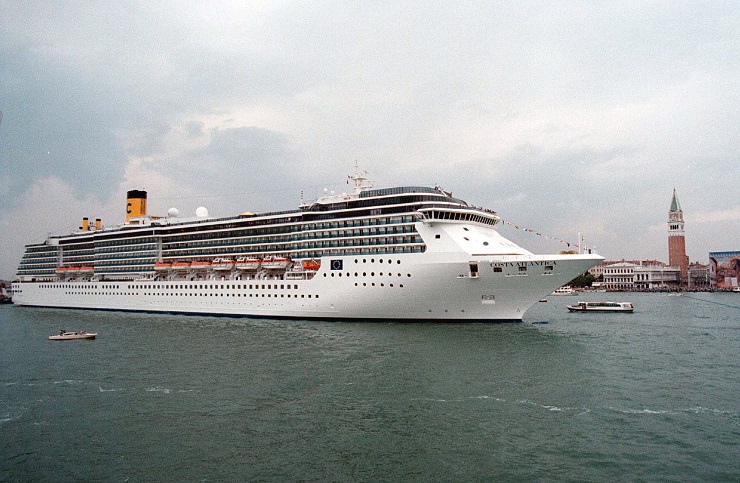While we haven’t yet seen survivors of a nuclear attack being turned away from bunkers, the current version of NIMBY consists of countries refusing to let cruise ships with Corona Virus passengers on board permission to dock. Supplies are parachuted onto their decks in a new version of the 1948 Berlin Airlift, and fuel is delivered by plane. Unlike those 1914 passengers who danced on, oblivious that they were headed into an iceberg, the 10,000 passengers currently adrift can follow every twist and turn of their hejira, but can no more control their fate than those aboard the Titanic.
Associate Professor Jeremy Lim from the global health program at Singapore’s Saw Swee Hock School of Public Health felt compelled to point out that viruses don’t respect borders — as if governments didn’t know that. “Countries have to share information and help each other, as we are only as strong as the weakest link. Any country can become a reservoir of disease, forcing the world to endure a ping-pong of outbreaks over and over again.”
Among the many crowdsourcing platforms created to share medical advice, the guidelines posted by Boston’s Brigham and Women’s Hospital in Boston includes information from Chinese doctors — a small step, given the different ratios of doctors to inhabitants.
Singapore has 2.4 doctors for every 1,000 people, compared to 2.59 in the US, 1.78 in China and 4.2 in Germany. Places like Myanmar and Thailand have fewer than one doctor for every 1,000 people.
Covid 19 also reveals a fundamental difference between Europe and the US: the structure of parliamentary democracies enables governments to order the private sector to ramp up production of the ventilators, masks and medications required to eventually defeat a pandemic. It’s business as usual when France’s health minister announces that he has done this, while the American president can only appeal to private patriotism, forcing states to bid against each other for life-saving equipment. For the federal government to have the necessary authority, the President must take certain legal steps, which Trump has failed to do, as if trying to prove that private enterprise should not fear government interference. Inevitably, governors step in, with New York’s highly intelligent and energetic Andrew Cuomo leading the way — with an eye to replacing the two septuagenarian presidential candidates Biden and Sanders. On the plus side, Americans are discovering that government can be invaluable in times of crisis, although given time lost, 200,000 citizens are expected to die.
Meanwhile, their president is either deliberately belittling foreign countries or he is really clueless about the rest of the world’s level of development, when he boasts that the US was ‘sending ventilators to our allies, because they don’t know how to make these things’. (The rest of the world practices solidarity, recognizing that viruses don’t respect borders.)
Singapore’s Hock School of Public Health appealed for countries to share information and help each other, noting that each is only as strong as the weakest link. (Singapore has 13,766 doctors, or 2.4 doctors for every 1,000 people, compared to 2.59 in the US, 1.78 in China and 4.2 in Germany. Places like Myanmar and Thailand have fewer than one doctor for every 1,000 people.) China’s Jack Ma Foundation has launched an online platform for doctors and nurses around the world to share knowledge, promoting the idea of “One world, one fight”, which should long ago have motivated the United Nations to move toward organizing medical responders as well as peace-keepers. (Having flunked all math and science classes, I fantasize that technology could lead to a rolling attack on Corona from the skies….)
Deena Stryker is a US-born international expert, author and journalist that lived in Eastern and Western Europe and has been writing about the big picture for 50 years. Over the years she penned a number of books, including Russia’s Americans. Her essays can also be found at Otherjones. Especially for the online magazine “New Eastern Outlook”.

